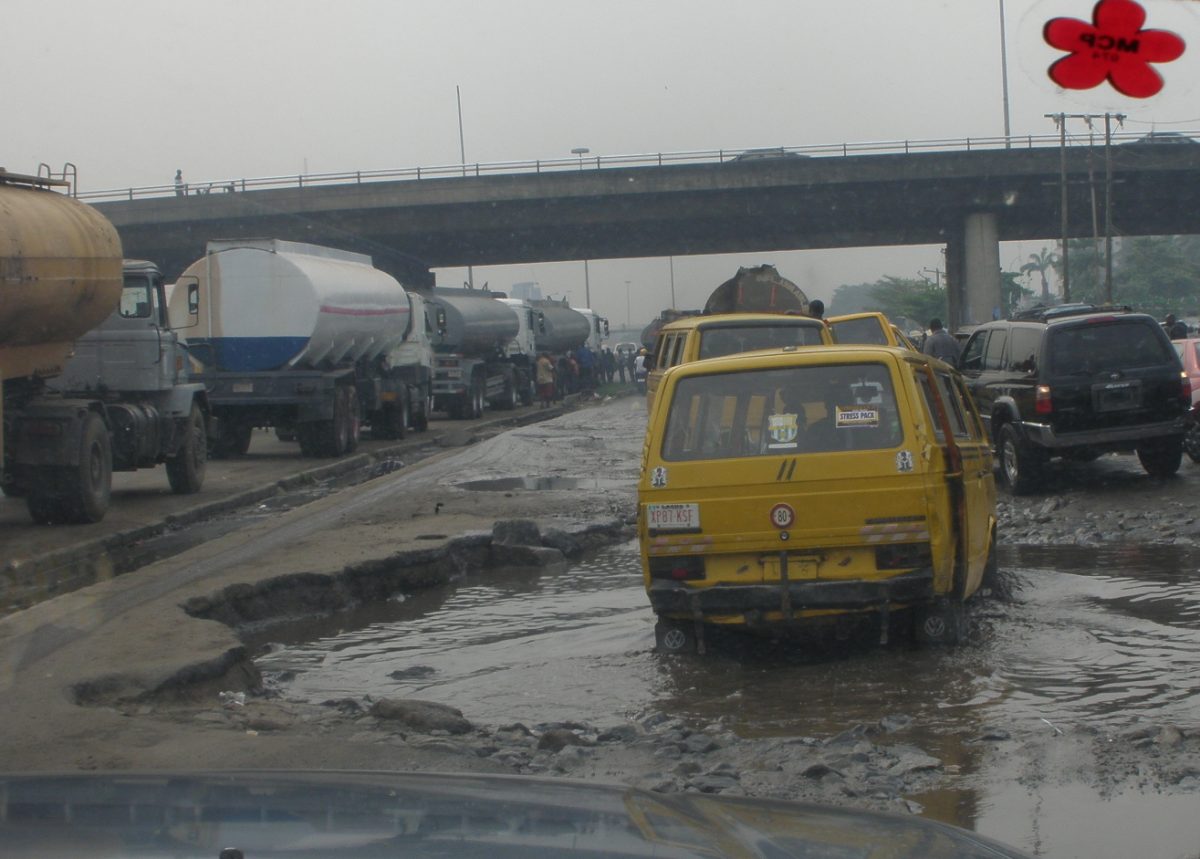
Word
Studies recently completed by JG Afrika, a leading South African firm of consulting engineers, have informed the design of the rehabilitation of a strategic road connecting Tin Can Island Port to major commercial centres in Lagos State, Nigeria.
The existing access road from Tin Can Island and the six-lane expressway that connects Apapa Wharf, one of Nigeria’s major commercial centres, to Oworonshoki was built in the 1970s and has since fallen into a serious state of disrepair. This road currently is a flexible pavement with an asphalt base and surfacing
This state of distress and disrepair has contributed to severe vehicle congestion comprising mainly trucks using the road between the port and Oworonshoki daily.
In addition to negatively impacting efficiencies at the port and the Nigerian government’s larger trade facilitation programme, the severe traffic has adversely affected many small businesses in Apapa and road safety levels, especially during the wet season.
Rehabilitating the roads as part of a public-private partnership was first mooted by AG Dangote Construction, a subsidiary of local cement giant, Dangote Industries, and the proposal was favourably received by the Federal Ministry of Power Works and Housing.
JG Afrika proposed a continuously-reinforced concrete pavement (CRCP) design to better cope with the growing number of heavy commercial vehicles travelling between Apapa Wharf and Oworonshoki daily.
The design is similar to that deployed in constructing South Africa’s Ben Schoeman highway, which remains a stellar example of CRP design, providing the South African National Roads Agency Limited with a more cost-effective means of maintaining this heavily-trafficked route between Johannesburg and Tshwane in Gauteng.
This design replaced the initial suggestion of using a conventional jointed concrete pavement (JCP) that would ultimately develop slab tilting and stepping on the extremely soft subgrade material on sections of the existing Apapa to Oworonshoki road.
Dangote Industries can be credited with introducing concrete pavements to Nigeria. Its construction arm has invested heavily in the equipment required to construct these pavements. This includes a concrete paver to accelerate construction times and a state-of-the-art road recycler able to convert the base layers into a cement-treated base on site.
Dr Emile Horak, a well-known pavement specialist who led the JG Afrika team that undertook the pavement evaluation, previously played an instrumental role in assisting the contractor introduce in-situ recycling equipment to Nigeria.
“This technology, combined with the concrete paver, will enable the contractor to complete the extensive rehabilitation as a CRCP alternative design in a significantly shorter period than is possible when constructing a conventional asphalt pavement. This is a major advantage as the contractor will be working in an extremely built-up area. The onerous process of relocating people and structures, together with the inconvenience of prolonged construction activities, were among the chief reasons the Nigerian authorities delayed rehabilitating the road,” Dr Horak says.
JG Afrika was appointed by the contractor to undertake the pavement evaluation in 2018, and these critical insights have been incorporated into the final rehabilitation design by Yolas Consulting, a Nigerian engineering consultancy working on behalf of AG Dangote Construction.
A detailed assessment of the condition of the road pavements and a geotechnical investigation of material used in the existing road were previously undertaken by Yolas as part of the project. JG Afrika could build on this investigation and also undertook an extensive investigation of all available construction materials to build the road and structures.
The studies identified high deflection on the existing asphalt road resulting from a very weak pavement structure, while very poor materials were also used in the construction of the existing road, especially for the foundation layers.
Testing undertaken on cores from the existing pavement showed that all of the properties met the specification requirements and that the grading of the aggregates was within the specification envelope for wearing course. It was therefore clear that this material could be included as good quality material for the new subbase of the planned CRCP proposal.
However, unsuitable material was identified in the samples of the existing sub-base and sub-grade layers that were collected from various locations along the road. The mixing in of the better quality recycled asphalt in the existing base and surfacing will therefore provide for good quality material for the planned new subbase comprising of the recycled surfacing, base and subbase materials as a good quality new cement treated subbase.
Meanwhile, a visual condition assessment undertaken by the team of engineers showed significant distresses and failures on most sections of the existing road infrastructure.
According to the study, it will be possible to source sufficient filling material from all of the borrow pit areas that were investigated, while suitable crushed rock aggregate for the base course can be obtained from the rock outcrops that were observed along Logos-Ibadan road.
The engineers also found the available aggregate, water and river sand to be of a suitable quality for the construction works. Should there be insufficient river sand, they have recommended supplementing supply with quarry dust.
JG Afrika also noted that adequate provision be made in the Detailed Design Report for drainage and sub-drainage improvement, especially in the swampy areas, in addition to the need to reinstate the shoulder of the entire road.
Dr. Horak says the concrete pavement design expertise of Ane’ Cromhout, pavement engineer with the JG Afrika team, formed the basis of the recommendations to use CRCP. These recommendations made by JG Afrika were well received by the contractor and he anticipates work to commence imminently on the rehabilitation of this critical road infrastructure.
“Dangote Construction deserves to be lauded for the innovative approach that it has taken to rehabilitating the many roads in the country that have fallen into a serious state of disrepair. This has added impetus to the Nigerian government’s already-heightened focus on repairing these strategic assets and building new roads to expand the national network,” he concludes.
More information from Charmagne Denny, Tel: +27(0)11 231 2200 / email: [email protected] / http://www.jgafrika.com

